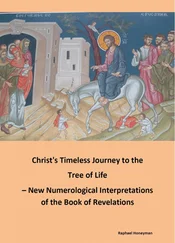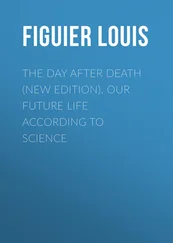Well though Chuter Ede understood it, Butler may not have appreciated at first quite how viciously this hornets’ nest could sting. 55On 12 September 1941, shortly after his return from holiday, Butler sent Churchill a note, reminding him of his offer of advice, and proposing a major education Bill. He listed the main issues to be solved:
There is, first, the need for industrial and technical training and the linking up of schools closely with employment. Secondly, a settlement with the Churches about Church schools and religious instruction in schools. Both these questions are nationwide. Thirdly, there is the question of the public schools, which may easily raise widespread controversy. 56
Had Butler achieved this agenda, Correlli Barnett would have been a happier man and Britain perhaps a more prosperous place. Churchill, however, who had in part been made a minister by the religious controversies in education in the first decade of the century, reacted as though he had been himself been stung. The next day (a Saturday) he promptly minuted Butler:
It would be the greatest mistake to raise the 1902 controversy during the war, and I certainly cannot contemplate a new Education Bill. I think it would also be a great mistake to stir up the public schools question at this present time. No one can possibly tell what the financial and economic state of the country will be when the war is over. Your main task at present is to get the schools working as well as possible under all the difficulties of air attack, evacuation, etc. If you can add to this industrial and technical training, enabling men not required for the Army to take their places promptly in munitions industry or radio work, this would be most useful. We cannot have any party politics in wartime, and both your second and third points raise these in a most acute and dangerous form. Meanwhile you have good scope as an administrator. 57
Butler records: ‘Sir Maurice Holmes took the Prime Minister’s minute as a veto on education reform and wrote me a philosophic letter,’ one Butler later described as ‘disappointingly compliant’. 58It is a masterpiece of Mandarinese.
R. S. Wood and I have discussed the PM’s minute to you. I do not think we need be unduly cast down. It seems to me axiomatic that a major measure of educational reform will be demanded in quarters which make the demand irresistible, and the question then is not whether but when such reform will be brought about.
And there are, I feel, some advantages in having more time than ever your revised programme contemplated for reaching the greatest common measure of agreement on the more contentious issues, so that from this point of view the PM’s frigid reception of your proposals has its brighter side.
However, if educational legislation is to be shelved till the war is over, we shall then be able to think more clearly in terms of bricks and mortar than is possible while the war is in progress, and so form reasonably sound estimates of the dates when this and that measure of reform can become operative. The delay is of course disappointing, particularly to those of us who, like myself [Holmes was 57], cannot hope to accompany you into the Promised Land, but that you will lead the Children of Israel there, I do not doubt. 59
Butler, fortunately for the nation’s children and the Conservative Party’s future, was made of sterner stuff. In his memoirs he records: ‘Basing myself on long experience with Churchill over the India Bill [the great man had initially refused to contemplate Indian independence, only finally to embrace its inevitability], I decided to disregard what he said and go straight ahead. I knew that if I spared him the religious controversies and party political struggles of 1902 and side-tracked the public schools issue, I could win him over. I intended to have an Education Bill.’ 60He spent the next eighteen months attempting to do just that. ‘It was the religious issue that took the time,’ Butler later wrote. 61The one weapon he had to hand was the state of the church schools. The one solution available for the religious teaching controversy was something called the ‘agreed syllabus’ originally drawn up in Cambridgeshire in 1924 by a committee of Anglicans, Free Churchmen and teachers to provide religious instruction in the county’s schools. By 1942 more than 100 of the 400 local education authorities were using it. The syllabus was sufficiently non-denominational to keep the Nonconformists happy, while sufficiently C of E to allow some Anglican school managers to hand their schools over to the local authority in return for a promise that the agreed syllabus would be used. 62Churchill became intrigued by it, dubbing it ‘the County Council Creed’. But while some Anglicans were happy to live with it, others were not and the Roman Catholics disliked it, Cardinal Hinsley, the head of the Catholic Church in Britain, dubbing it ‘disembodied Christianity’. 63
Early talks with the churches did not go well. The Roman Catholics were adamant about retaining their own schools, arguing they paid rates and taxes for the upkeep of local authority schools ‘which their consciences would not let them use’ while having spent millions over the decades to provide their own. ‘They were determined they would not be lost now,’ Butler records. 64On the Anglican side, the Archbishop of Canterbury was Cosmo Gordon Lang, seventy-seven years old and chairman of the governors of Charterhouse. In November 1941 he made Butler apprehensive by insisting that the future of the public schools was of ‘paramount importance’. It was therefore a considerable relief to Butler that Lang retired within six months. Churchill replaced him with William Temple, despite the new archbishop’s leftish leanings (apart from popularising the term ‘welfare state’ he had once, for seven years, been a Labour Party member). In Conservative circles ‘his political tendencies were suspect,’ Butler said in his memoirs, recording Temple as being ‘physically obese, but intellectually and spiritually a first-class athlete … we have few bishops today who could hold a candle to him.’ 65
Temple, at sixty-one, ‘looked exactly like one of Dickens’s true philanthropists; a portly, chubby-faced, twinkling-eyed, bespectacled figure with a gusty laugh, exuding goodwill from every pore,’ according to Angus Calder. ‘Buoyantly self-confident, utterly serene in his acceptance of his mission of leadership, Temple himself had never known doubt or want.’ The son of a former Archbishop of Canterbury, he had ‘easy brilliance’ and ‘far from being an impassioned extremist’ he was the ‘quintessence of compromise’. 66At the age of twenty-eight he had become headmaster of Repton, but from twenty-seven for sixteen years he had been president of the Workers Educational Association, the ‘working class university’ which ran part-time, weekend and factory-based lectures and courses. Sir Maurice Holmes’s prescient judgement was that his appointment to Canterbury offered ‘a chance of getting the Church of England into play’. 67Without him, the religious settlement in the 1944 Act may well not have happened. Temple and Butler’s rapport was one of those occasions when personalities, whether they gel or clash, matter in politics.
What tipped Temple to his side, according to Butler, was a meeting at the Board of Education’s Kingsway headquarters in the summer of 1942, not long after the Archbishop’s appointment, ‘one hot morning in the conference room, its windows blitzed out and covered with cardboard, no air in the room’. 68Butler described to Temple the Board of Education’s ‘Black List’, the list of physically seriously substandard schools to which Chuter Ede had drawn his attention. 69Of the 731 on the list, 543 of them were church schools – perhaps not surprising when more than 90 per cent of the church schools were over forty years old and the churches alone were responsible for capital spending. Butler records that Temple was moved by the figures and ‘said he had not realized what a bad state the church schools were in’. 70
Читать дальше
![Nicholas Timmins The Five Giants [New Edition]: A Biography of the Welfare State обложка книги](/books/701739/nicholas-timmins-the-five-giants-new-edition-a-cover.webp)











